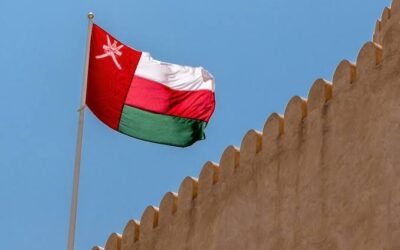The Sultanate of Oman Ranks Fifth in Arab Health Spending: A Look at Regional Healthcare Investments
In a recent report by “Al Jazeera Net,” the Sultanate of Oman has secured a notable position, ranking fifth among Arab nations in healthcare spending. This report, highlighted by “Ather,” sheds light on the considerable disparities in health budget allocations across the Arab world, with Saudi Arabia leading the pack, followed by Kuwait, Qatar, and the UAE.
The Sultanate of Oman: A Model for Healthcare Excellence
The Sultanate of Oman is increasingly recognized as a pioneering model in the region for its healthcare initiatives. The Sultanate has allocated a substantial health budget of 1.056 billion Omani Riyals for the year 2024, marking an increase of 11 million Riyals from the previous year. This investment underscores the Sultanate’s commitment to enhancing its healthcare infrastructure, which includes 88 hospitals with a total capacity of 7,000 beds and 487 health centers.
Moreover, the Sultanate is implementing ambitious strategies under its Vision 2040 plan. This initiative aims to produce 13,000 health specialists to address future healthcare demands and ensure the sustainability of its health system. Such proactive measures position the Sultanate of Oman as a leader in healthcare innovation and accessibility.
Ranking of Arab Countries in Healthcare Spending
- Saudi Arabia: Health Budget: 8.88 billion Omani Riyals; Per Capita Spending: 1,165.68 Omani Riyals; Average Life Expectancy: 78.29 years; Key Focus: Privatization and private sector participation under Vision 2030.
- Kuwait: Health Budget: 3.49 billion Omani Riyals; Per Capita Spending: 1,119.7 Omani Riyals; Average Life Expectancy: 80.63 years; Key Focus: Enhancing health services through Vision 2035.
- Qatar: Health Budget: 2.29 billion Omani Riyals; Per Capita Spending: 1,137.52 Omani Riyals; Average Life Expectancy: 81.9 years; Key Focus: Innovation and sustainability with 11% of the budget dedicated to the health sector.
- United Arab Emirates: Health Budget: 525 million Omani Riyals; Per Capita Spending: 1,563.03 Omani Riyals; Average Life Expectancy: 80.65 years; Key Focus: Health service digitization and the use of artificial intelligence.
- Oman: Health Budget: 1.056 billion Omani Riyals; Per Capita Spending: 634.14 Omani Riyals; Average Life Expectancy: 79.18 years; Key Focus: Advanced infrastructure featuring modern hospitals and health centers.
Regional Observations and Challenges
The report highlights that wealthier nations, such as Saudi Arabia, Kuwait, and Qatar, are prioritizing innovation and technological advancements in their healthcare systems. Conversely, countries with limited resources like Algeria, Jordan, and Tunisia are grappling with challenges related to funding and equipment shortages. These nations are striving to improve basic healthcare services and expand health coverage for their populations.
The Future of Arab Health Cooperation
Despite the progress made by various Arab countries, a significant gap remains in healthcare spending between affluent and less wealthy nations. The report raises critical questions about the potential for enhancing regional cooperation in health technology. Learning from the experiences of more developed countries could pave the way for achieving health equity across the Arab world.
Conclusion: The Importance of Health Investment
In conclusion, healthcare spending is a vital indicator of a nation’s overall well-being. As Arab countries continue to navigate the complexities of health system improvement, investing in healthcare infrastructure and fostering regional cooperation will be essential. Could embracing technology and collaborative efforts be the key to overcoming the current challenges in healthcare? The future of health in the Arab region depends on such innovative solutions.
Hassan Al Maqbali
Content Creator & Website Manager at Omanspire
Hassan Al Maqbali is a dedicated content creator and the website manager at Omanspire, where he writes passionately about Oman's culture, history, and the timeless stories that shape the nation’s identity. His work reflects a deep love for the Sultanate and a commitment to sharing its beauty with the world.
Driven by a desire to widen global understanding of Oman, Hassan creates narratives that present the country through diverse perspectives—capturing its people, heritage, landscapes, and evolving cultural heartbeat. Through Omanspire, he hopes to bring readers closer to the spirit of Oman, one story at a time.




